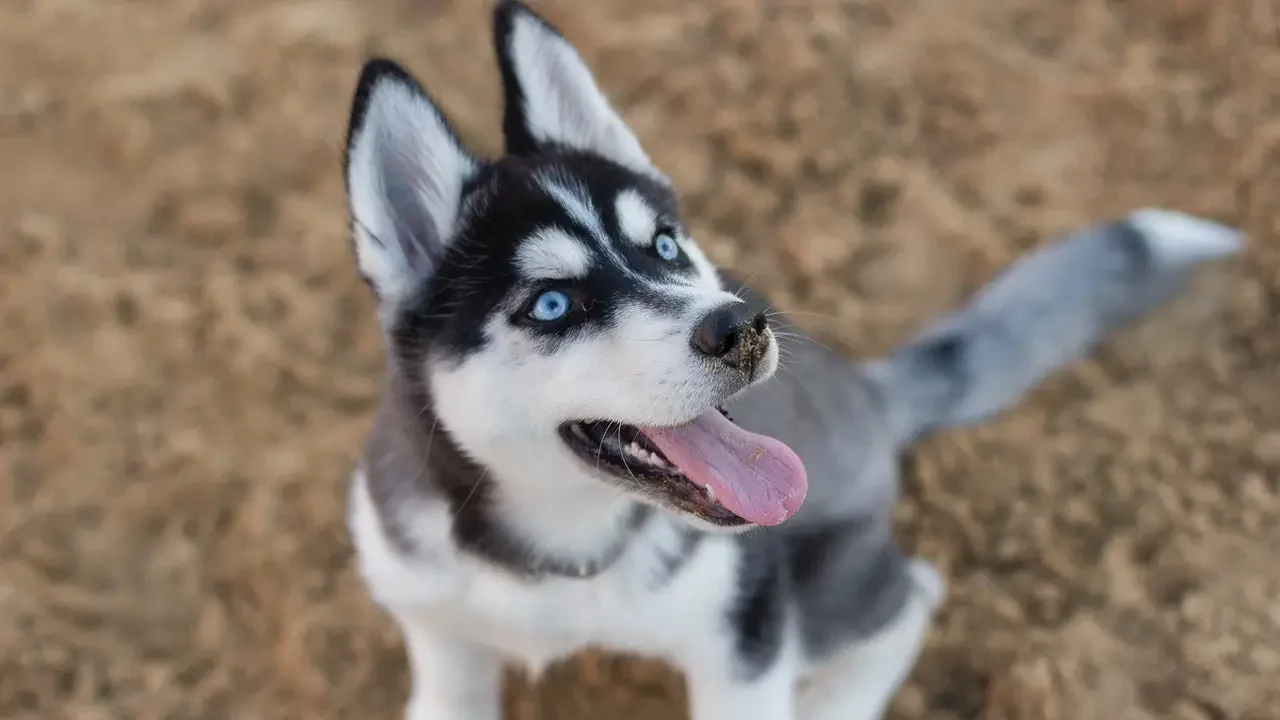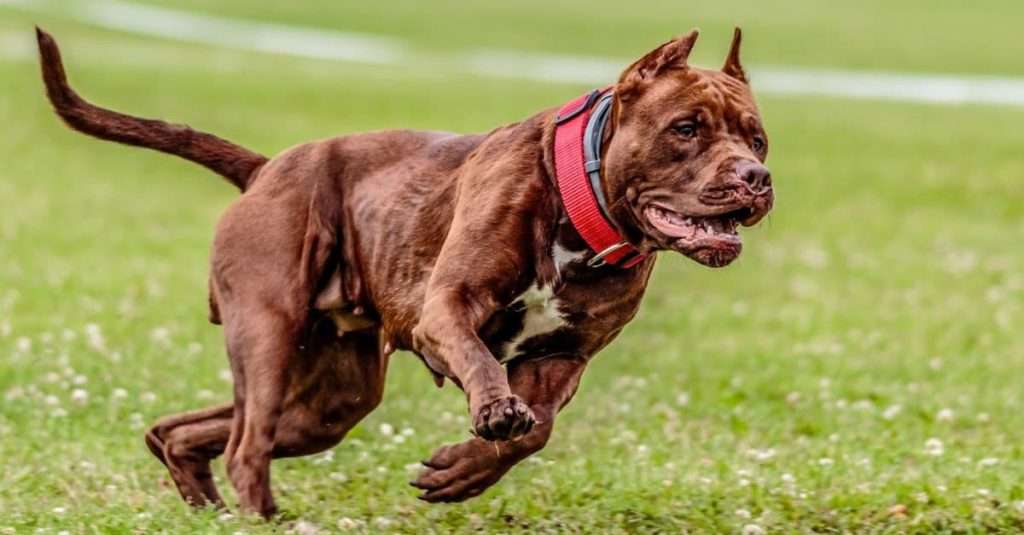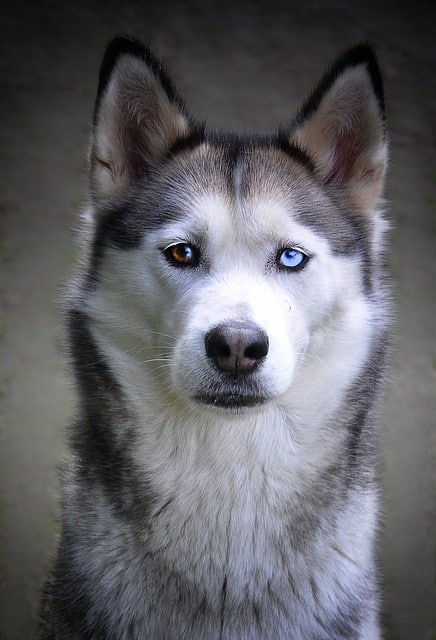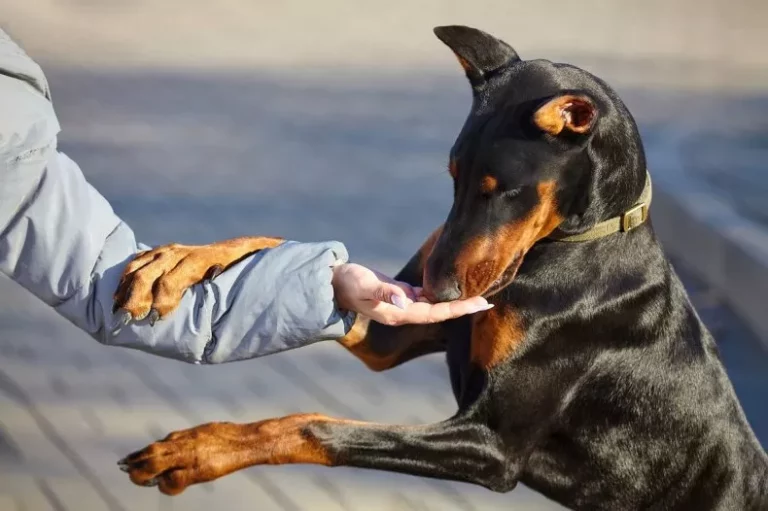Are Huskies Dangerous? Raising a Husky with Cats
Are huskies dangerous? Get the truth about these majestic dogs and explore their temperament, behavior, and common misconceptions. Discover how to safely raise and enjoy the companionship of a husky. Read on to learn more.

When it comes to canine companions, huskies have captured the hearts of many dog lovers around the world. Known for their striking appearance and captivating blue eyes, these Arctic dogs have a charm that’s hard to resist. However, there are often misconceptions surrounding their temperament and behavior, leading to the question: Are huskies dangerous? In this article, we’ll explore the truth behind this popular inquiry, debunk common myths, and provide insights into the nature of huskies.
Are Huskies Dangerous Dogs?
Huskies often have a wolf-like appearance, which can sometimes intimidate people and lead them to believe that they are dangerous dogs. However, those who are familiar with Huskies know that they are actually friendly and affectionate animals.
Occasionally, a Husky may display behavior that goes against its natural disposition and may appear dangerous. In order to understand why this happens, we need to evaluate the circumstances that could potentially make a Husky dangerous and how we can prevent such situations from occurring.
1. Husky Temperament: Gentle Giants of the Arctic
Huskies have a reputation for being friendly and affectionate, both with their human companions and other dogs. They are known to be pack animals, which means they thrive in the presence of their family. While they possess a strong prey drive due to their sled-pulling history, it doesn’t automatically make them dangerous.
2. Are Huskies Aggressive Towards Children and Strangers?
Huskies can be great family pets and are generally good with children when properly socialized and trained. As with any dog breed, early socialization and positive reinforcement play a vital role in shaping their behavior. However, it’s essential to supervise interactions between huskies and young children to ensure safety and prevent any potential accidents.
3. Huskies and Other Animals
Huskies have a high prey drive, which can pose challenges when introduced to smaller animals like cats or rabbits. However, with proper training and gradual introductions, they can coexist peacefully. It’s crucial to manage their interactions and provide a safe environment for all pets involved.
4. The Husky Howl: Communication or Danger Signal?
One of the most distinctive traits of huskies is their howling. While it can be quite loud and might startle those unfamiliar with the breed, howling is a natural form of communication for huskies. It’s their way of expressing their emotions, seeking attention, or responding to certain stimuli. Understanding this behavior helps create a deeper bond with your husky.
5. Exercise Needs
Huskies are an active breed with a high energy level. Regular exercise and mental stimulation are crucial to prevent boredom and potentially destructive behavior. Engaging in activities such as long walks, runs, or interactive playtime not only keeps them physically fit but also contributes to their overall well-being.

why are huskies dangerous?
why are huskies dangerous? Now we will explore in which circumstances the huskies become dangerous. While huskies are generally known for their friendly and gentle nature, there are certain factors that can contribute to their behavior becoming dangerous.
It’s important to note that not all huskies exhibit these tendencies, and responsible ownership, proper training, and socialization play a crucial role in shaping a dog’s behavior. Here are some reasons why huskies can potentially become dangerous:
Lack of Socialization
Insufficient socialization during a husky’s formative months can lead to fear, anxiety, and aggression later in life. When huskies aren’t exposed to various environments, people, and animals, they may become reactive or fearful in unfamiliar situations, which can result in aggression.
Improper Training
Huskies are intelligent dogs with an independent streak. Inconsistent or inadequate training can lead to behavioral issues and even aggression. Training should focus on positive reinforcement, clear communication, and establishing a strong bond of trust between the owner and the dog.
Neglect or Abuse
Like any breed, huskies can suffer from neglect or abuse, which can profoundly impact their behavior and make Huskies dangerous. Dogs that have endured mistreatment may exhibit fear-based aggression or defensive behaviors as a result of their past experiences.
Lack of Exercise and Mental Stimulation
Huskies have high energy levels and require regular exercise and mental stimulation. When their needs are not met, they can become bored, and frustrated, and develop undesirable behaviors, including aggression and this behavior makes Huskies dangerous. Sufficient physical activity and engaging mental challenges are essential for a well-balanced husky.
Health Issues
Physical discomfort or underlying health conditions can influence a husky’s behavior. If a dog is in pain or experiencing discomfort, it may exhibit aggression as a defensive response. Regular veterinary check-ups and addressing any health issues promptly are crucial for a dog’s well-being.
Resource Guarding
Huskies can exhibit resource-guarding behavior, especially when it comes to food, toys, or their resting areas. If not properly managed or addressed, resource guarding can escalate into aggression. Working with a professional trainer or behaviorist can help address this issue effectively.
How to Prevent Huskies Dangerous Behavior
Preventing huskies from becoming dangerous starts with responsible ownership, proactive training, and creating a safe and positive environment for your furry friend. Here are some essential measures to control huskies and ensure their behavior remains friendly and non-threatening:
Early Socialization
Start socializing your husky from a young age, exposing them to various people, animals, and environments. This helps them become familiar with different stimuli, reducing the likelihood of fear-based aggression later in life. It can prevent becoming Huskies dangerous.
Positive Reinforcement Training
Use positive reinforcement techniques, such as treats, praise, and rewards, to prevent becoming your husky dangerous. Consistency and patience are key. Focus on teaching basic commands, proper leash manners, and impulse control to establish a strong bond and reinforce good behavior.
Structured Exercise Routine
Develop a structured exercise routine to meet your husky’s high-energy needs. Regular physical activity, such as long walks, runs, or engaging in dog sports like agility, helps channel their energy in a positive way and reduces the likelihood of boredom-related aggression.
Mental Stimulation
Huskies are intelligent dogs that require mental stimulation to prevent boredom and destructive behavior. Provide puzzle toys, interactive games, and training sessions that challenge their minds. This keeps them engaged and mentally satisfied.
Consistent Boundaries and Rules
Establish clear boundaries and consistent rules for your husky. Reinforce behaviors you want to encourage while discouraging undesirable behaviors. Be firm and fair in your approach, but avoid using harsh punishments or physical force, as it can lead to fear or aggression.
Proper Health Care
Regular veterinary check-ups and prompt medical attention are vital for maintaining your husky’s overall health and well-being. Address any health issues promptly, as underlying discomfort or pain can contribute to aggression or behavioral changes.
Supervision and Safety Measures
Supervise your husky when interacting with children, strangers, or other animals. Ensure their interactions are positive and controlled, and intervene if necessary. Use appropriate safety measures like leashes, harnesses, and secure fencing to prevent escapes or potential incidents.
My husky killed my cat
Huskies, like many other dog breeds, possess natural predatory instincts. These instincts can be triggered by small animals, such as cats, especially if they are not familiar with or have not been properly socialized with them. However, it’s crucial to note that not all huskies exhibit aggressive behavior towards cats or other small animals.
Is it common for huskies to kill cats?
No, it is not common for Huskies or any specific dog breed to have a natural inclination to kill cats or other small animals. While individual dog behavior can vary, it is important to note that most dogs, including Huskies, can coexist peacefully with cats and other pets if they are properly introduced and socialized.
Raising a husky puppy with cats
Raising a husky puppy with Cats: Introducing a Husky puppy into a household with cats requires careful planning and gradual introductions to ensure a harmonious coexistence. With the right approach, patience, and consistent training, it is possible to raise a Husky puppy alongside cats.

Which dog is more dangerous
When it comes to evaluating the danger level of a dog, it’s essential to approach the topic with caution and avoid generalizations. A dog’s behavior and temperament are influenced by various factors, including genetics, individual upbringing, socialization, and training. It is unfair and inaccurate to label an entire breed as inherently dangerous. However, certain breeds have gained a reputation that may lead to the perception of increased danger.
However, the American Pit Bull is considered the most dangerous dog in the World. Here is the list of the 5 most dangerous dogs.

- Pit Bull.
- Rottweiler.
- German Shepherd
- American Bulldog.
- Bullmastiff
Which dog is the most friendly
5 Safest Dog Breeds for Families, Best Family-Safe Dogs are the dogs who have friendly behavior to humans, and here is the list of these dogs:
- Labrador Retriever.
- Golden Retriever.
- Irish Setter.
- Beagle.
- Border Collie.
Conclusion
We try to clear the myth: Are Huskies dangerous dogs? Huskies are not inherently dangerous dogs. Like any breed, their temperament and behavior are influenced by various factors such as genetics, socialization, and training. Understanding their unique needs, providing proper care, and addressing potential challenges will pave the way for a harmonious relationship with these captivating canines.
By debunking common myths and embracing the true nature of huskies, you can enjoy the incredible companionship and unwavering loyalty these majestic dogs have to offer.
FAQS
Are huskies prone to aggression?
Like any breed, individual huskies can display aggression if not properly trained or socialized. However, with the right upbringing, they can be gentle and well-behaved companions.
Are huskies good family pets?
Yes, huskies can make great family pets when properly trained and socialized. They are generally affectionate, and friendly, and enjoy the company of their human pack.
Can huskies be left alone for long periods?
Huskies are social dogs and thrive in the presence of their family. Leaving them alone for extended periods can lead to separation anxiety and undesirable behavior. It’s best to provide companionship and mental stimulation for a happy husky.



